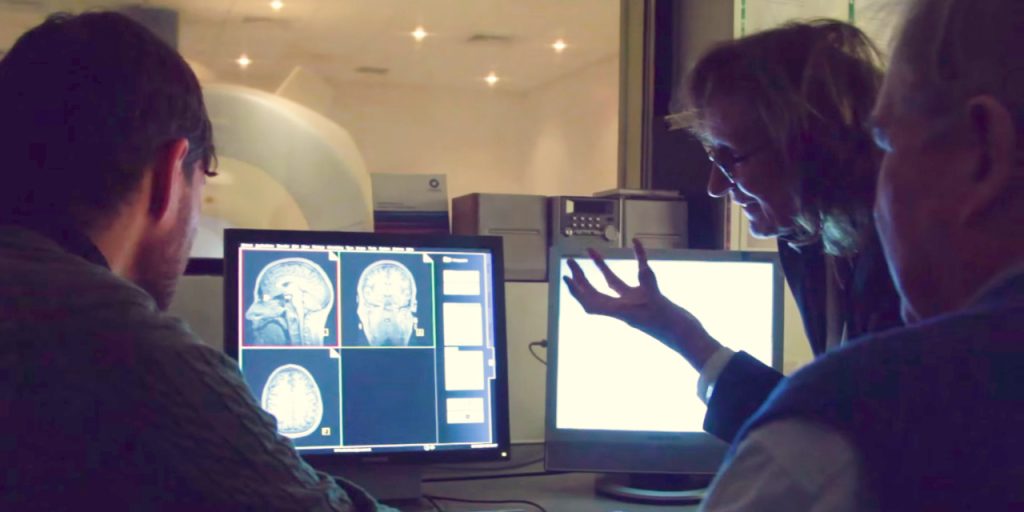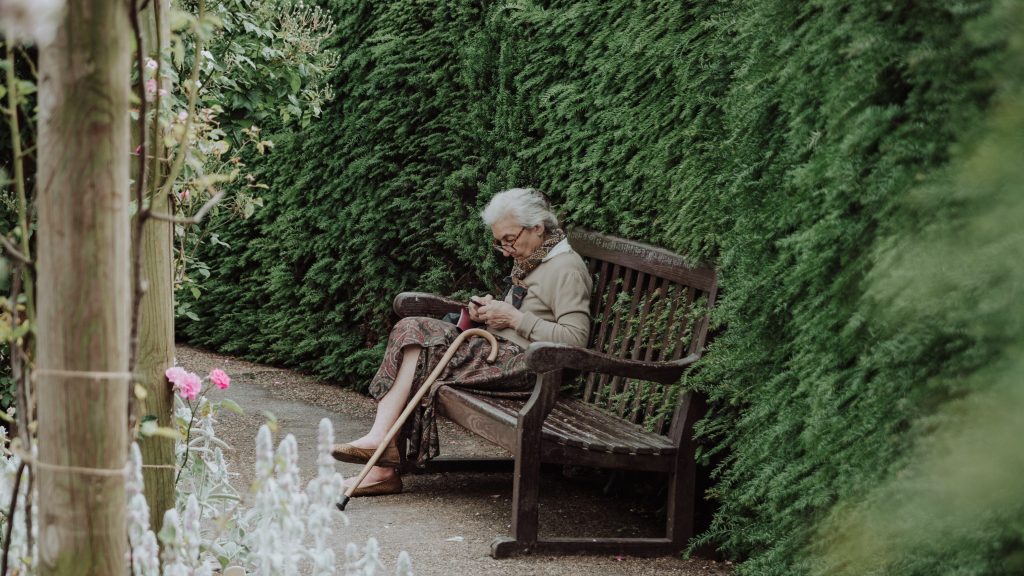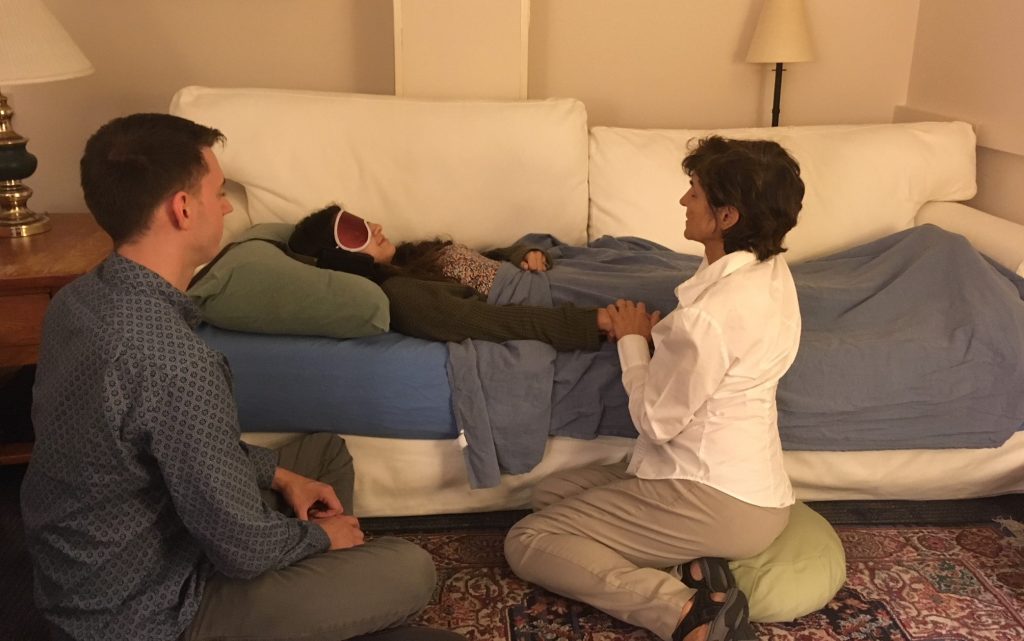
New Approaches to Mental Health
Mental illness is one of the leading global health challenges of the 21st century and is a major factor in the overall disease burden worldwide. Despite the prevalence of mental illness, current treatment methods, are woefully inadequate and, in response, rates of mental illness continue to grow. If we do not fully address the complications associated with these debilitating conditions, the consequences will be detrimental to both individual and societal functioning.
It is clear that advances in our current understanding, combined with research into alternative treatment methods, are pivotal in confronting this ongoing epidemic. As existing treatments fail to reduce the rate of mental illness, research into promising new therapeutic methods is essential. In light of this increasing demand, the Beckley Foundation, founded and led by Amanda Feilding, is researching the mechanisms behind the mind-altering nature of currently-controlled, psychoactive substances (LSD, psilocybin, DMT, cannabis and MDMA) to demonstrate their potential in treating mental health conditions.
The beneficial effects exerted by psychedelics are thought to arise from their ability to lessen ruminating behaviours, which are a commonality between numerous mental health conditions (depression, anxiety, OCD, addiction etc).

Depression affects 300 million people worldwide. That’s 4% of the global population, a figure which jumps significantly in developed countries, where 10-20% of people live with depression. Just think about that for a moment. That means that, on an average public bus, across the globe, at least one passenger is suffering from depression. In 2013, depression was ranked as the 2nd leading cause of disability worldwide, and in 26 countries, it was the leading driver of disability.
Depression is a difficult-to-treat illness which destroys the lives of millions of people across the planet and causes a significant economic burden. Students showing symptoms of depression are twice as likely to drop out of high school compared to their healthy peers, while individuals with depression have a 40% greater risk of developing cardiovascular and metabolic diseases compared to the general population. Despite this, rates of depression are on the rise.
Antidepressants remain the most popular treatment for depression, with selective serotonin reuptake inhibitors (SSRIs) being the most commonly prescribed despite a number of drawbacks. SSRIs require up to 12 weeks of daily dosing before reductions in feelings of depression are apparent and thereafter the effectiveness varies widely from patient to patient. Up to 30% of patients may not respond to SSRIs, and many will experience worsening of their depression. A 2017 review examined 131 trials into SSRIs, involving 27,422 patients, and concluding that:
“SSRIs might have statistically significant effects on depressive symptoms, but all trials were at high risk of bias and the clinical significance seems questionable. SSRIs significantly increase the risk of both serious and non-serious adverse events. The potential small beneficial effects seem to be outweighed by harmful effects.”
A recent study found that one of the most commonly prescribed SSRIs did little to improve symptoms of depression, acting more as an anxiolytic. However, most healthcare professionals agree that the risks of antidepressants are less than the risks associated with untreated depression, but they impress that psychotherapy has a greater chance of causing lasting positive mental health improvements. Aviva’s Health of the Nation Report conducted with 202 GPs in the UK, showed that 75% of GPs prescribed medication even though they felt psychological therapies would be more effective.
With this in mind, it seems ludicrous to neglect promising avenues such as psilocybin-assisted psychotherapy, in which participants are administered psilocybin and guided through a psychedelic experience by a trained therapist.
In 2016, the Beckley/Imperial Research Program published the first clinical evidence for the efficacy of psilocybin-assisted psychotherapy in treatment-resistant depression. All subjects showed a reduction in their depression severity ratings 1 week after treatment, and results remained positive at the 3 and 6 month follow up. These lasting effects resulted from just two sessions of psilocybin-assisted psychotherapy in which 85% of participants reported enduring reconnection to themselves and others around them.
This study has now evolved into a phase II clinical trial at Imperial College London, with phase III trials expected, in the US, later this year after the FDA granted breakthrough status to psilocybin for depression.

The FDA also granted breakthrough status to MDMA in the treatment of post-traumatic stress disorder (PTSD). In the US. 3.6% of adults have experienced PTSD in the past year. Among these adults, 36.6% showed significant functional impairment, 33.1% had moderate impairment, and 30.2% had mild impairment as scored through the Sheehan Disability Scale. The current treatment for PTSD is a cocktail of drugs which make little promise of a long-term solution.
Compared to the high number of non-responders to currently available treatment methods, a phase 2 clinical trial using MDMA-assisted psychotherapy found highly promising results. After three sessions of MDMA-assisted psychotherapy, 61% of subjects no longer qualified as having PTSD at a two-month follow-up, rising to 68% at a twelve-month follow-up. The main reason for this incredible success rate is that MDMA drastically reduces the fear response, allowing patients to connect with therapists to discuss their trauma.
MDMA-assisted psychotherapy as a treatment for PTSD has now reached phase III clinical trials, and it may soon be available as a legal medicine. Collaborative work has also shed light onto the potential of MDMA as a treatment for social anxiety in autistic adults and end-of-life anxiety associated with life-threatening illnesses.
“It’s like doing therapy while being hugged by everyone who loves you, in a bathtub full of puppies licking your face”
– Jon Lubecky, PTSD patient after MDMA Psychotherapy
Anxiety disorders, alongside depression, are one of the most prevalent mental health conditions. On average, 6.8 million adults in the U.S are affected by general anxiety disorders, yet only 43.2% receive treatment.
As well as the explored use of psychedelics in treating depression and PTSD, LSD-assisted psychotherapy has also been indicated as a treatment for end-of-life anxiety. A 2008 study, co-sponsored by the Beckley Foundation revealed alleviation of end-of-life anxiety in patients suffering from terminal illness after LSD-assisted psychotherapy. Steering away from conditioned patterns of thought, the transcendent experience, or the ‘peak’ during their therapy sessions enabled subjects to approach and accept their feelings of existential distress.
There are few treatments available for end-of-life anxiety which is why Amanda Feilding, director of the Beckley Foundation, is excited to start further trials into this much-needed treatment.

Sadly, while these revolutionary new treatments are being developed, the lack of effective treatments for mental illness can push many individuals towards substances which are both harmful and addictive. Worldwide, alcohol is responsible for 1 in 20 of all recorded deaths and almost 400,000 people die, annually, from opioid drugs including prescription opioids. In addition to substance misuse related to mental illness, nicotine addiction causes more than 7 million deaths per year.
Collectively, addiction and depression are the leading cause of suicide, which stands as the 18th leading cause of death worldwide. Despite this, there are very few effective treatments for addiction but, once again, psychedelics have shown considerable efficacy.
In a pilot trial supported by the Beckley Foundation and conducted by Prof. Roland Griffiths and Dr. Matthew Johnsons at John Hopkins University, psilocybin-assisted psychotherapy caused 80% of chronic smokers quit tobacco for over 6 months. This is more than double the success rate of similar drug interventions.
The effectiveness of LSD in the treatment of alcohol use disorder was known before the psychedelic substance was outlawed in 1973, and a 2012 meta-analysis revealed long-lasting beneficial effects of a single dose of LSD on alcohol use disorder.
With evidence to suggest that psychedelics may be equally effective in the treatment of many types of addiction, the Beckley Foundation is currently seeking funding for clinical trials into psychedelics for opioid addiction to combat the growing opioid epidemic.

As rates of mental illness continue to grow, it is essential that we focus on overcoming this challenge. Despite being a leading cause of disability, mental health research still remains underfunded. In the UK, only 5.5% of the health budget is dedicated to mental health research. This amounts to £9.71 per adult suffering from a mental illness, compared to roughly £1571 per cancer patient.
While increasing the mental health budget is of great importance, a single change to the law could dramatically accelerate the development of effective treatments.
LSD, MDMA, and psilocybin, used in the treatments covered in this article, are all classified as schedule I substances, meaning that they have no medical benefits and a high risk for abuse. This description does not fit.
Psilocybin and LSD are both less toxic and less addictive than a cup of coffee, and it is generally accepted that no human has died from a direct overdose on these substances. Beyond this, a recent study found that LSD does not reduce the quality of decision-making and nor does it encourage reckless behaviour. Similarly, there is no evidence to suggest that MDMA has a high risk for abuse, in fact MDMA-dependance almost never occurs. Over 1500 doses of MDMA have been administered under controlled conditions without a single adverse event requiring emergency treatment.
As the evidence for the medical potential of psychedelics increases, so too does the pressure upon the government to reschedule these substances, enabling research and the development of effective mental health treatments.
The Beckley Foundation will be publishing a policy proposal later this year, calling on the government to reconsider current restrictions on MDMA, and Amanda Feilding will continue her ongoing efforts to reschedule psychedelics and accelerate their research.
If you believe in the importance of revolutionary new mental health treatments, then please consider becoming a Beckley Foundation donor so that we can bring psychedelic-assisted therapies to the patients that need it most.
To all those struggling with mental health: It’s okay not to be okay.
Podcast
- All
Links
- All
Support
- All
BIPRP
- All
Science Talk
- All
Amanda's Talks
- All
- Video Talk
- Featured
- 2016 Onwards
- 2011-2015
- 2010 and Earlier
- Science Talk
- Policy Talk
One-pager
- All
Music
- All
Amanda Feilding
- All
Events
- All
Highlights
- All
Psilocybin for Depression
- All
Current
- All
Category
- All
- Science
- Policy
- Culture
Substance/Method
- All
- Opiates
- Novel Psychoactive Substances
- Meditation
- Trepanation
- LSD
- Psilocybin
- Cannabis/cannabinoids
- Ayahuasca/DMT
- Coca/Cocaine
- MDMA
Collaboration
- All
- Beckley/Brazil Research Programme
- Beckley/Maastricht Research Programme
- Exeter University
- ICEERS
- Beckley/Sant Pau Research Programme
- University College London
- New York University
- Cardiff University
- Madrid Computense University
- Ethnobotanicals Research Programme
- Freiburg University
- Medical Office for Psychiatry and Psychotherapy, Solothurn
- Beckley/Sechenov Institute Research programme
- Hannover Medical School
- Beckley/Imperial Research Programme
- King's College London
- Johns Hopkins University
Clinical Application
- All
- Depression
- Addictions
- Anxiety
- Psychosis
- PTSD
- Cancer
- Cluster Headaches
Policy Focus
- All
- Policy Reports
- Advisory Work
- Seminar Series
- Advocacy/Campaigns
Type of publication
- All
- Original research
- Report
- Review
- Opinion/Correspondence
- Book
- Book chapter
- Conference abstract
- Petition/campaign
Search type